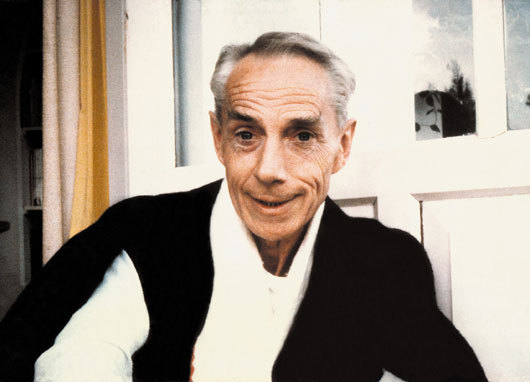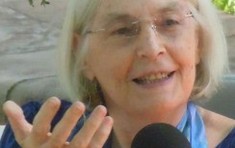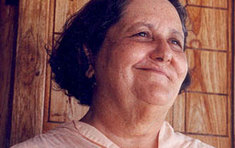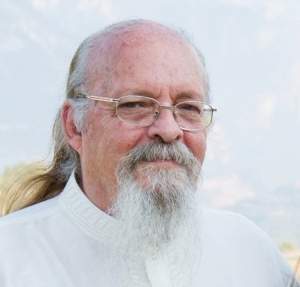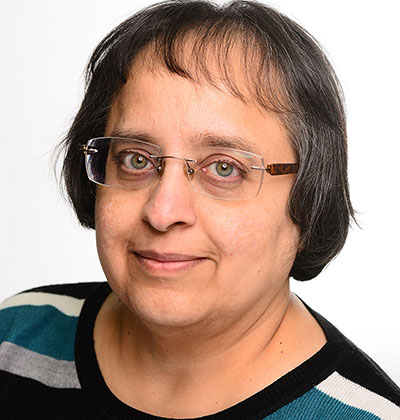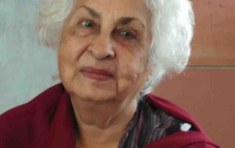Last updated:
Kireet Joshi
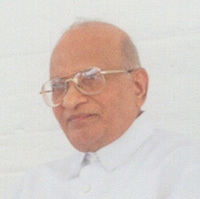
Kireet Joshi (born 1931) was appointed Chairman of the Auroville Foundation in April 1999. He was at the same time Chairman of the Indian Council of Philosophical Research and Vice-Chairman of the Maharishi Sandipani Rashtriya Veda Vidya Pratishthan, - both institutions working under the Government of India. He was a member of the Indian delegation to the Commonwealth Ministers Conference held in Halifax in Canada, and he played a significant role in the recent conferences of UNESCO on higher education. Kireet was a member of a number of committees in the University Grants Commission, the National Council of Education Research and Training, and the Indian Institute of Advanced Study, Shimla. Kireet Joshi passed away 14 September 2014.
Connection with the Ashram and with Auroville
Kireet was a student of Philosophy and Law, and although selected in 1955 for the topmost service of the Government of India, the Indian Administrative Service (IAS), he resigned in 1956 in order to devote himself completely to the study and practice of the Yoga of Sri Aurobindo and the Mother at the Sri Aurobindo Ashram, Pondicherry. It was here that he participated in numerous experiments that were being conducted at the Sri Aurobindo International Centre for Education under the direct guidance of the Mother. Kireet also taught philosophy, psychology and Indian culture. It was during this period that the concept and plan of Auroville had begun to take shape, and in 1968 when Auroville was founded, he took an active part in the preparation of the inaugural ceremony. There were several occasions when Mother while speaking to Kireet made comments about Auroville. Since then, the ideals of Auroville and the Charter of Auroville remained for him a perennial source of inspiration and motive of life.
Drafting of the Auroville Act
In 1976, the Prime Minister of India, Shrimati Indira Gandhi, appointed Kireet as Education Advisor to the Government of India. During his tenure in the Government (1976-1988), one of the responsibilities assigned to him was related to Auroville, as difficulties had arisen and help was sought by the residents of Auroville. In 1980, and again in 1988, the Parliament of India enacted legislation in regard to Auroville, and the drafting of these items of legislation was assigned to Kireet. During the period 1980-82, issues concerning Auroville had come up in the High Court of Calcutta and in the Supreme Court of India, and it was largely due to the advice given by Kireet that the Supreme Court of India upheld the Government's contention that the teaching of Sri Aurobindo does not constitute a religion, - a position that Sri Aurobindo and the Mother have repeatedly underlined in their writings.
Development of education in Auroville
During 1980-88, with the help of the International Advisory Council of Auroville (comprising the then Minister of External Affairs of India, Mr J.R.D. Tata, Madame Zhivkova of Bulgaria and Mr M'Bow, the then Director General of UNESCO), Kireet Joshi supported a number of activities of Auroville and particularly aided in the development of education. On 28th February 1984, the Sri Aurobindo International Institute of Educational Research (SAIIER) was created and several important research projects were undertaken. In due course, SAIIER published two major research publications, The Aim of Life and The Good Teacher and the Good Pupil. These books made under the guidance of Kireet have been appreciated by educational experts in India and abroad (a third book, Mystery and Excellence of the Human Body has since been published)
Active Chairman of the Auroville Foundation
In January 1999, Kireet was nominated by the Government of India to be a member of the International Advisory Council of the Auroville Foundation, and three months later, he was made Chairman of the Foundation. He then plunged again into the Auroville adventure by becoming immediately the most active chairman (then) to date, spending long weeks in Auroville, interacting tirelessly with many residents and working groups with the ever present aim of moving speedily towards the concrete realisation of Auroville's ideals. Kireet was actively involved in education, and was giving daily classes to the adolescents of Super School whenever he was in Auroville.
Impetus
New research projects in value-oriented education have been launched with the participation of a large group of Aurovilian researchers, and he had given impetus to the possible development of a new economy so as to realise the ideal given by the Mother of "no exchange of money among Aurovilians". Kireet also encouraged the development of new modes of organisation of collective life in the light of Sri Aurobindo's and Mother's vision of a spiritualised society. Kireet was also the general editor of the 'Value-oriented education series" of books.
